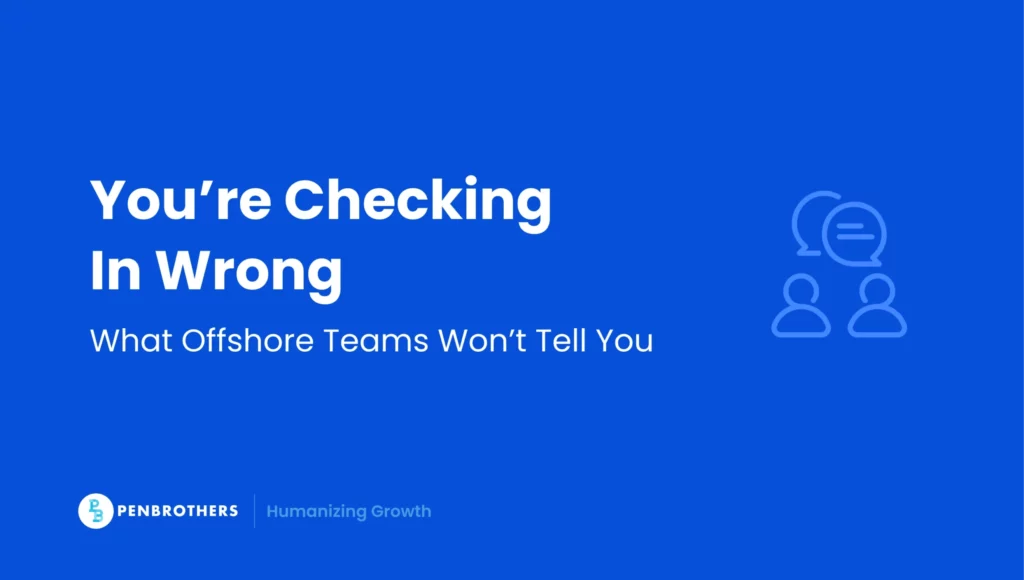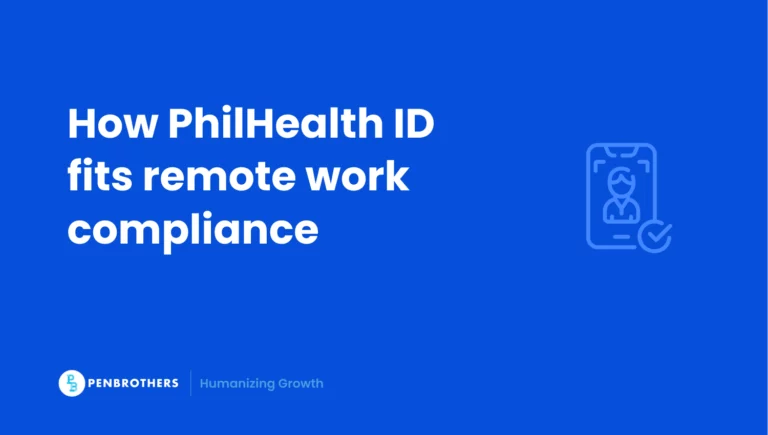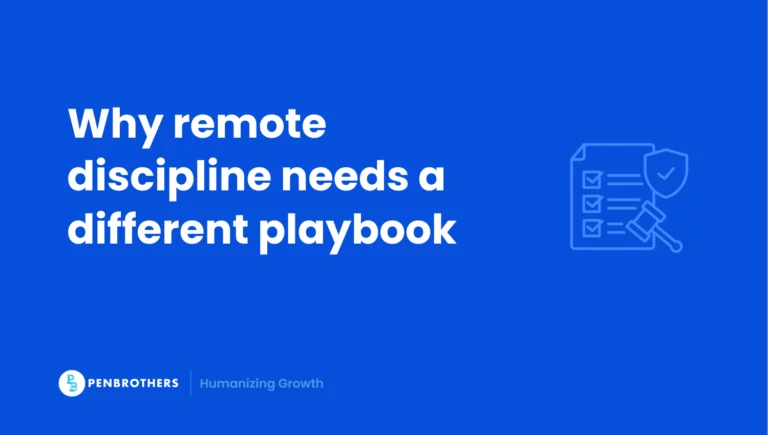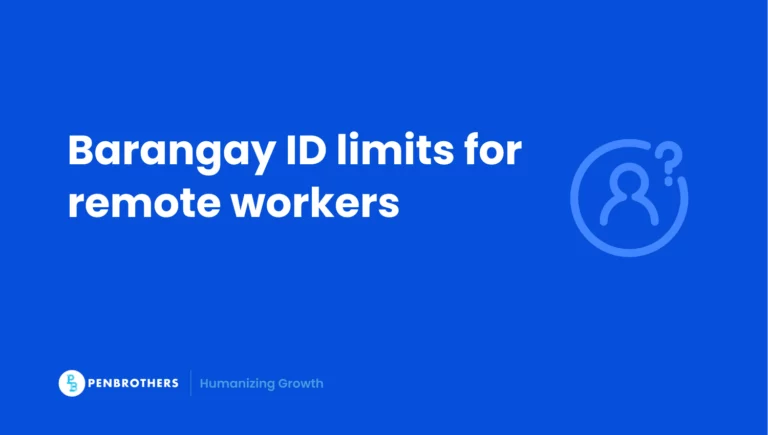Hiring a remote team in the Philippines comes with plenty of upside, but managing that team from a different country, culture, and time zone? That’s where most offshore managers slip.
One of the most overlooked (and expensive) mistakes? How often do you check in with your team? Weekly vs. monthly check-ins seem like a simple scheduling choice, but the reality is, it’s a decision that directly impacts retention, team performance, and your bottom line.
Here’s what managers often get wrong, and what you can do instead.
The Hidden Cost of Poorly Timed Check-Ins
You’re probably already doing some kind of check-in. Maybe it’s a weekly huddle. Or a monthly team sync buried in a loaded calendar. But are those meetings actually working?
Here’s the thing:
- When weekly check-ins lack depth. They can come across as repetitive and purely for show. They burn out teams without solving real issues.
- Monthly check-ins that are too packed often miss the signals—people simmer in silence until the problems become too big to ignore.
What’s the result? Misaligned expectations, declining engagement, and missed KPIs. Especially when your team spans cultures and time zones.
What Offshore Managers Often Miss
When managing a Filipino remote team, the check-in model isn’t just about cadence. It’s about cultural intelligence, psychological safety, and business alignment.
Picture this scenario: A US-based SaaS client working with a 12-person support team in Manila opted for monthly check-ins only to “save time.” Within 3 months, response times dipped, NPS dropped, and two team members quietly left.
The problem wasn’t skills or tools. It was a lack of context and support. The client didn’t notice until it hit their metrics.
Had they used weekly micro-check-ins combined with monthly strategic reviews (as we advised in our remote team playbook), they would have spotted issues earlier, without overloading their calendars.
The Power of Hybrid Cadence: What Works Best
You don’t need more meetings. You need the right rhythm. Here’s what top-performing offshore managers do with Filipino remote teams:
| Cadence | Purpose | Best For |
| Weekly micro check-ins (15–20 mins) | Coaching, clearing blockers, and motivation pulse | Team leads, project execution |
| Monthly strategy syncs (45–60 mins) | Goal review, cross-team alignment, and business updates | Founders, department heads |
| Quarterly retrospectives | Deep reflection, team input, and roadmap feedback | Culture-building, retention planning |
This hybrid model blends Filipino relationship culture (where rapport and face time matter) with global work efficiency.
Case Study: One of our clients, an e-commerce platform scaling fast, saw a remarkable increase in task completion rates and maintained a high NPS score after implementing a hybrid check-in cadence with their Filipino customer service team.
Why This Matters: The Business Impact
You’re not just building a team. You’re building trust across oceans.
When check-ins are optimized:
- Turnover drops because people feel heard before they feel burnt out.
- Projects move faster because blockers are addressed in real-time.
- Morale improves because wins are celebrated more consistently.
This directly supports Penbrothers’ mission of helping global companies build high-performing, culturally intelligent teams in the Philippines without the common pitfalls.
What’s a Filipino Work Culture Trait You Should Know?
Filipinos value “pakikisama” (camaraderie) and thrive when leaders show genuine interest beyond deadlines. Regular check-ins create space for that, even if short.
Want to deepen your understanding of Filipino work dynamics? Learn more in our guide to celebrating Filipino culture at work.
FAQs: What Offshore Managers Ask Before Hiring in the Philippines
How often should I check in with my Filipino remote team?
A hybrid cadence in the form of weekly micro check-ins and monthly strategic syncs is optimal. It balances cultural rapport and efficiency.
Are weekly meetings too much for offshore teams?
Not when they’re short, focused, and consistent. Think coaching, not reporting.
What happens if I only do monthly check-ins?
You risk missing early signs of disengagement, misalignment, or quiet quitting—especially in cultures where confrontation is rare.
How can I build trust in remote check-ins?
Open with rapport-building, close with action items. The structure matters as much as the schedule.
Do Filipino remote workers prefer frequent check-ins?
Yes, when they feel safe, respected, and heard. Frequent contact signals leadership presence and care.
Final Take: Don’t Just Check In. Check Forward
Your team doesn’t need more calls. They need purposeful, culturally aware communication that drives progress.
Penbrothers helps global teams get this right, not just by staffing great talent in the Philippines, but by building the frameworks and rhythms that help those teams thrive.
Ready to build a team that works with you, not just for you?






